
Allyship In Action: A series on allyship skills, lessons, and institutional programs (IDEAS)
-
Register
- User - Free!
As institutions and individuals in academic medicine reaffirm their commitment to advance diversity, equity, and inclusion, there is increasing interest in allyship skills and practices to ensure we're all working toward building more supportive and inclusive environments. To accelerate our efforts to advance DEI, the AAMC is hosting a 3-part webinar series on allyship to discuss the skills and practices of being an effective and authentic ally, as well as showcasing promising institutional programs to firmly establish a culture of allyship and accountability in your organization. The first webinar in this series will cover core equity practices and skills, the second will feature a panel of leaders in academic medicine sharing their allyship journeys and lessons, and the third and final webinar will showcase institutional allyship programs that are showing progress in creating a culture of allyship.
"Engaging Allyship: Foundational Equity Practice Skills"
September 24 at 1 pm ET
This webinar addresses the importance of foundational equity skills and why they are critical to organizational cultures of safety, inclusion, and wellbeing. This learning opportunity outlines diversity, equity, and inclusion principles and values and establishes foundational behaviors that everyone can apply within their respective institutional roles.
“Allyship in Practice: Leadership Panel on Learning to be an Ally”
October 24 at 2 pm ET
Building off the foundational practices shared in the first webinar, this webinar features a facilitated panel of experienced allies in academic medicine to share information for those new or experienced in their allyship practice.
“Allyship Showcase: Institutional Programs to Support Allyship”
December 11 at 1 pm ET
In the third and final webinar of this series, speakers will share insights into how to institutionalize allyship efforts at your institution.
About IDEAS
The AAMC IDEAS Learning Series provides actionable information about strategies that you can put into practice to become a more effective and successful leader, educator, and member of the academic medicine community.
-
Contains 2 Component(s) Recorded On: 10/24/2024
Building off the foundational practices shared in the first webinar, this webinar features a facilitated panel of experienced allies in academic medicine to share information for those new or experienced in their allyship practice.
Building off the foundational practices shared in the first webinar, this webinar features a facilitated panel of experienced allies in academic medicine to share information for those new or experienced in their allyship practice. In a fireside chat style conversation, leaders will share their allyship journeys of learning how to be allies, what behaviors best exemplify allyship, and what hard lessons they learned along the way. Facilitated by our first allyship speaker, this panel will feature diverse perspectives on allyship and how it connects deeply with identity and positionality. There will be ample time for questions from the audience to answer participants’ challenges related to allyship. Individuals identifying as men and/or as white are especially encouraged to attend to learn from these incredible leaders.
Learning objectives:
- Learn allyship practices and behaviors as a leader
- Reflect on ways to continuously improve your allyship skills as a leader
- Explore individual identity to understand how to act as an ally authentically
About IDEAS
The AAMC IDEAS Learning Series provides actionable information about strategies that you can put into practice to become a more effective and successful leader, educator, and member of the academic medicine community.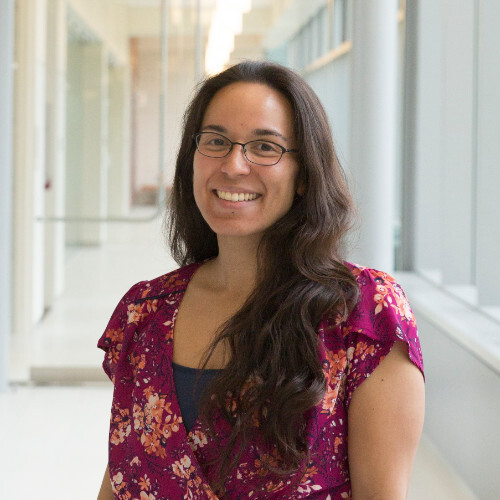
Sunny Nakae Ph.D., MSW (Moderator)
Associate Professor, Medical Education
Senior Associate Dean-Equity, Inclusion, Diversity, and Community Partnerships
California University of Science and Medicine (CUSM), Colton, CADr. Nakae is dedicated to access and equity in medical education and healthcare through transformative leadership and practice. She collaborates with campus constituencies and community partners to build capacity for justice in medicine and society through teaching, mentorship, and innovation. Dr. Nakae began her career as a director for Diversity at the University of Utah School of Medicine in Salt Lake City, Utah, and later served in the same role at the Feinberg School at Medicine at Northwestern University in Chicago, Illinois. She then served as Assistant Dean for Admissions, Recruitment, and Student Life at the Loyola University Chicago Stritch School of Medicine. She also joined the academy as an Assistant Professor of Medical Education. Dr. Nakae moved to Southern California to serve as Associate Dean for Student Affairs and Associate Professor of Social Medicine, Population, and Public Health at the University of California, Riverside School of Medicine. She is the Senior Associate Dean for Diversity, Equity, Inclusion, and Partnership at CUSM.
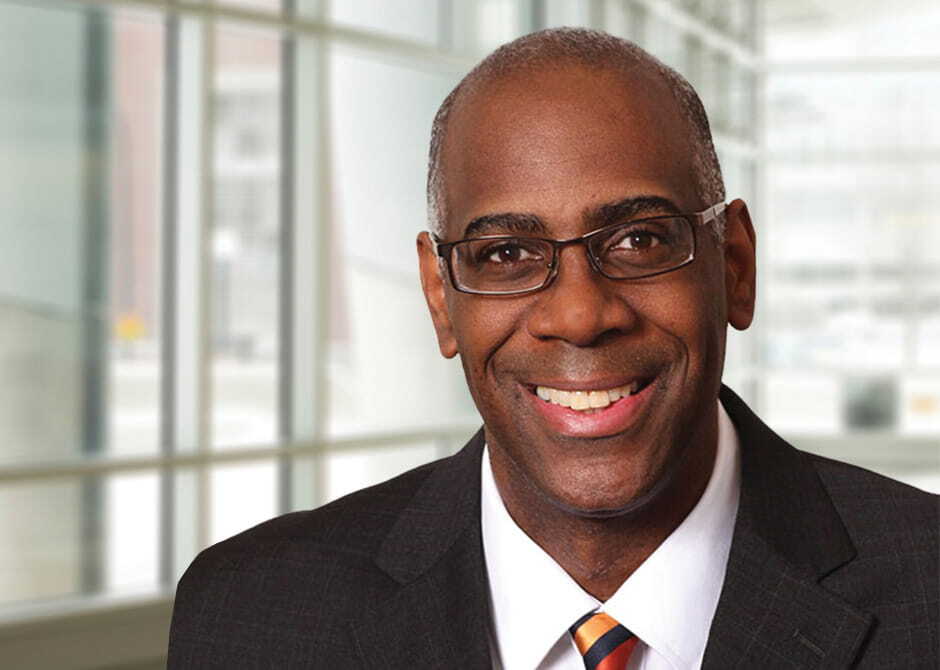
Leon McDougle, MD, MPH
Chief Diversity Officer, The Ohio State University (OSU) Wexner Medical Center
Associate Dean for Diversity and Inclusion, OSU College of Medicine
Lead Physician - Research, OSU Family Medicine at Outpatient Care East
Professor of Family Medicine
The Ohio State UniversityLeon McDougle, MD, MPH is professor of Family Medicine with tenure and the first chief diversity officer for the Wexner Medical Center. He directs several workforce diversity programs, including the MEDPATH Postbaccalaureate Program. He has been a family physician on the Near Eastside of Columbus since 2001 and believes that lifestyle must be a focus of both the treatment and prevention of chronic diseases such as diabetes and high blood pressure. His research is focused on diversity and inclusion and eliminating health disparities.
Dr. McDougle is a past president of the National Medical Association (NMA) and a past chair for the AAMC Group on Diversity and Inclusion (GDI), and provides service for the AAMC as faculty for the Healthcare Executive Diversity and Inclusion Certificate Program (HEDIC) and Minority Faculty Leadership Development Seminar (MinFac). Dr. McDougle was appointed to serve as the NMA representative on the National Collegiate Athletic Association Coronavirus Medical Advisory Group in July 2020. He is a Diplomate of the American Board of Family Medicine, a Fellow of the American Academy of Family Physicians and a member of the Association of Military Surgeons of the United States.
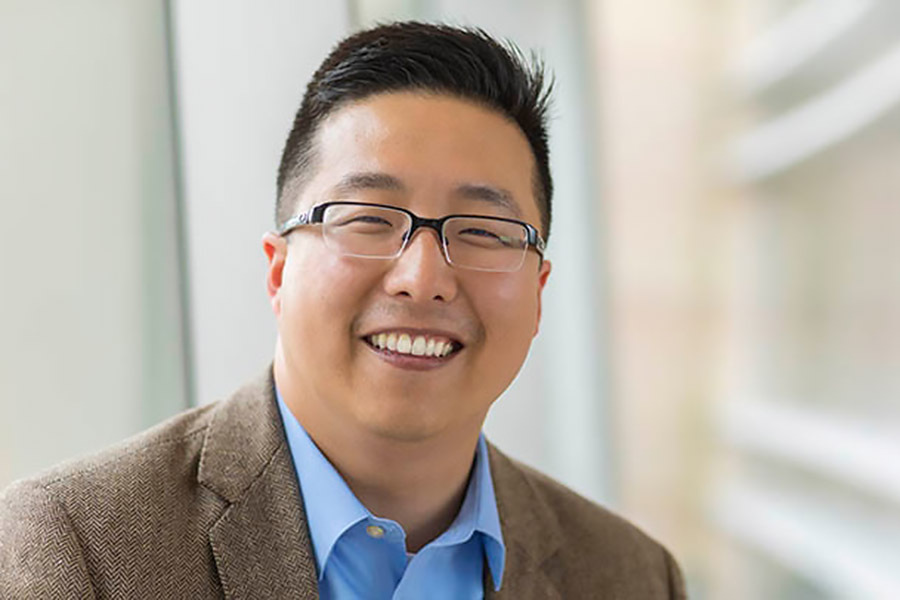
Howard Y. Liu, MD, MBA
Chair, Department of Psychiatry
Professor, Psychiatry
University of Nebraska Medical CenterHoward Y. Liu, MD, MBA, is a nationally recognized psychiatrist, educator, workforce expert, social media innovator, and equity advocate at the University of Nebraska Medical Center. He serves as the chair of the UNMC Department of Psychiatry, a professor with tenure in the UNMC College of Medicine, chair of the American Psychiatric Association’s Council on Communications, co-chair of the World Psychiatric Association’s Working Group on Medical Students, and as the past president of the Association of Directors of Medical Student Education in Psychiatry. He is a Distinguished Fellow of the American Academy of Child & Adolescent Psychiatry and serves on the program committee of the American College of Psychiatrists.
Dr. Liu is a champion for gender equity in leadership and has served as an invited speaker at the Harvard Women’s Leadership Course, the Brave Enough Conference, and the Women in Medicine Summit. He is a leader in Asian American Pacific Islander (AAPI) inclusion in healthcare leadership and serves as faculty advisor to the UNMC AAPI Student Association and as the executive sponsor of the Nebraska Medicine AAPI Employee Resource Group. Dr. Liu is nationally known for expertise in developing mental health pipeline programs in rural and urban underserved communities.
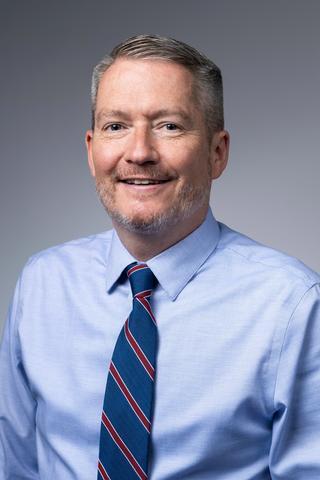
John P. Cullen, PhD
Director of Diversity and Inclusion, Clinical and Translational Science Institute
University of Rochester Medical Center
Interim Director, Susan B. Anthony Center
University of RochesterJohn P. Cullen, PhD, is the Director of Diversity and Inclusion for the Clinical and Translational Science Institute at the University of Rochester Medical Center, and Interim Director of the Susan B. Anthony Center at the University of Rochester. He completed his postdoctoral fellowship in the Department of Surgery at the University of Rochester Medical Center, where he became a faculty member and NIH funded researcher spending 15 years conducting both basic science and clinical research on cardiovascular disease.
In 2013, he joined the University of Rochester Susan B. Anthony Center, a center focused on gender equity and social justice issues. Dr. Cullen has an extensive background in LGBTQ health disparities and advocacy and in 2014, he completed a Graduate Certificate in LGBT Health Policy and Practice at the George Washington University. In 2016, he was appointed Director of Diversity and Inclusion for the University of Rochester Clinical and Translational Science Institute. In 2017, Dr. Cullen was selected by the AAMC Group on Women in Medicine and Science (GWIMS) to serve as its steering committee’s new issue-based representative, bringing unique perspectives to the group on male allyship and the need to support women in academic biomedical research.
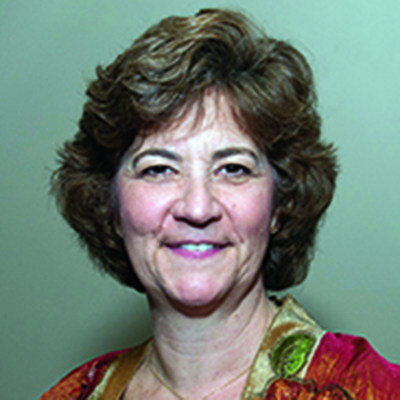
Linda Chaudron, MD, MS
Vice President and RG Bing-You Chair for Medical Education
Maine Medical Center
Visiting Professor, Department of Psychiatry
Tufts University School of MedicineAfter more than two decades as a faculty member at University of Rochester Medical Center (URMC), Linda Chaudron, MD, MS joined Maine Medical Center in August of 2021 to lead its Department of Medical Education, which includes undergraduate medical education (including Tufts University School of Medicine-Maine Track), graduate medical education, continuing professional development, interprofessional education, simulation laboratory and standardized patient training, Journal of Maine Medical Center, and library and knowledge services.
At URMC, Dr. Chaudron held many positions, including Vice Chair for Clinical Services, Co-Director of the Psychiatry Residency Program, Senior Associate Dean, and Vice President for Inclusion and Culture, to name a few. She also conducted research in perinatal depression and anxiety, and developed a specialized perinatal consultation clinic where she trained residents and medical students. In addition to her research and national and international work in perinatal depression, she has worked nationally on topics of diversity, equity and inclusion and is the immediate past chair of the AAMC Group on Women in Medicine and Science (GWIMS) Steering Committee.
-
Contains 2 Component(s) Recorded On: 12/11/2024
This webinar will showcase promising programs from academic medical centers that have established regular and embedded allyship efforts at their institutions.
In the third and final webinar of this series, speakers will share insights into how to institutionalize allyship efforts at your institution. This webinar will showcase promising programs from academic medical centers that have established regular and embedded allyship efforts at their institutions.
About IDEAS
The AAMC IDEAS Learning Series provides actionable information about strategies that you can put into practice to become a more effective and successful leader, educator, and member of the academic medicine community.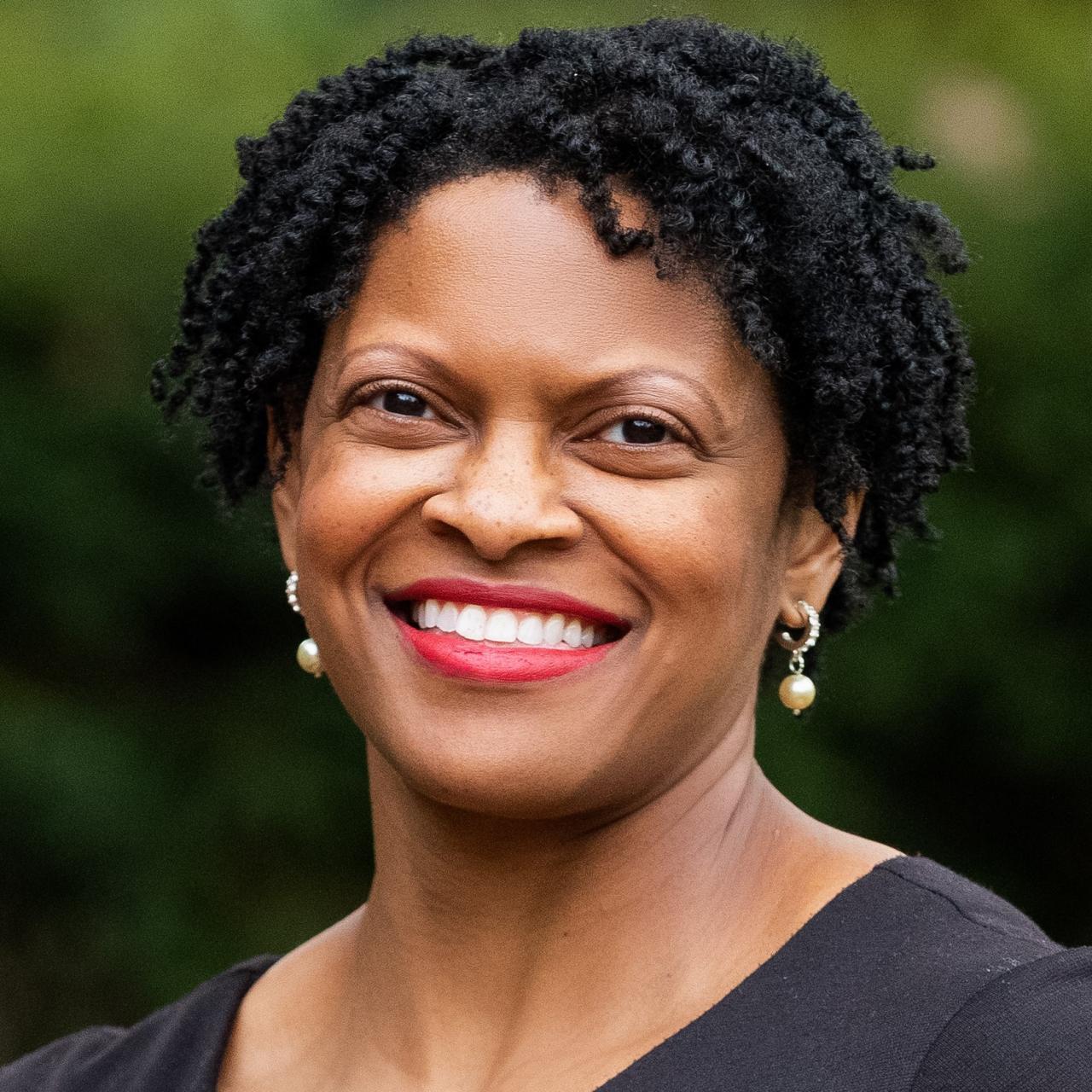
Andreá N. Williams, PhD (she/her/hers)
Interim Associate Vice Provost for Diversity and Inclusion
Director, The Women’s Place
The Ohio State UniversityAndreá N. Williams is director of The Women’s Place. Since joining The Ohio State University in 2006, Dr. Williams has served widely on college and university committees and contributed to initiatives dedicated to diversity, inclusion and women’s advancement. She was recognized with the university’s Distinguished Diversity Enhancement Award in 2016. Dr. Williams is also an associate professor in the Department of English, specializing in African American and nineteenth-century American literature. As a literary historian, she is drawn to questions about the social and material conditions that historically have enabled or inhibited African Americans in producing literature and art. She is the author of Dividing Lines: Class Anxiety and Postbellum Black Fiction (2013).
Dr. Williams’ current work traces the lives and literature of unmarried African American women who helped to cultivate singleness as a viable long-term lifestyle in the twentieth century. Her research has been awarded grants and fellowships from Rutgers University, the National Humanities Center, and the American Council of Learned Societies (ACLS). Dr. Williams is an alumna of Spelman College, a historically black women’s college in Atlanta, and earned her PhD at the University of North Carolina at Chapel Hill.
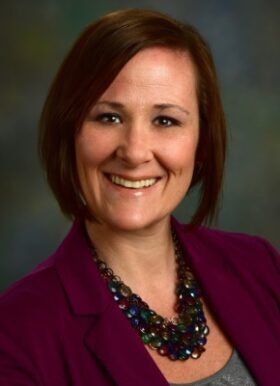
Erin Stampp, MPP (she/her/hers)
Director, Programming and Professional Development
Office of Diversity, Equity and Inclusion
Washington University School of MedicineErin Stampp has been serving communities as a diversity and inclusion practitioner for over 15 years in both the U.S. and internationally. She is passionate about achieving equity in outcomes for all individuals and has seen that diversity and inclusion efforts play a key role in the larger work of addressing health disparities and other inequities. Ms. Stampp received a Bachelor of Science degree in Sociology with a Minor in Women Studies from Western Illinois University and then joined the United States Peace Corps where she served in Port Antonio, Jamaica for 3 years. After returning to the U.S., she earned a Masters of Public Policy and a Certificate in Non-Profit Management from the University of Maryland, Baltimore County, where she also designed civic engagement and diversity learning opportunities for students.
After positions with Baltimore City, Missouri University of Science and Technology, and the Center for Diversity and Cultural Competence at Barnes Jewish Hospital, Ms. Stampp joined the Washington University School of Medicine as a Diversity and Inclusion Leader in May of 2017. She also serves the St. Louis Region as a training specialist with the Anti-Defamation League to provide K-12 anti-bias education. She participates in the Forward Through Ferguson Racial Equity Roundtable and is an ambassador with Alive and Well STL.
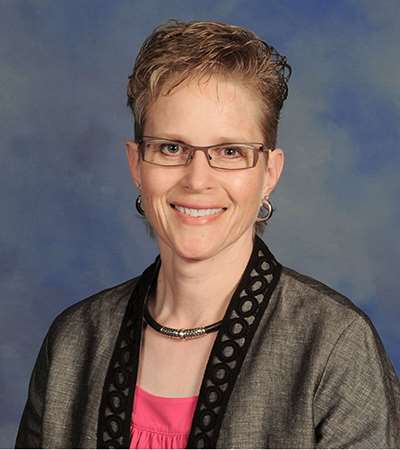
Libby Ellinas, MD, MS
Professor of Anesthesiology
Associate Dean for Women’s Leadership
Director, Center for the Advancement of Women in Science and Medicine (AWSM)
Medical College of WisconsinDr. Ellinas is Professor of Anesthesiology and joined Medical College of Wisconsin (MCW) in 2000, specializing in Obstetric Anesthesiology. She has held clinical roles as diverse as Director of OB Anesthesia and Program Director for MCW’s OB Anesthesia Fellowship. As Associate Dean for Women’s Leadership, Dr. Ellinas advances the MCW community as it becomes a destination of choice for women in academic medicine, and assists the recruitment, retention, advancement, and leadership achievements of women faculty.
With MCW Provost Joseph Kerschner, Dr. Ellinas developed and initiated a plan for a women’s leadership center at MCW in conjunction with MCW’s Council for Women’s Advocacy and launched the MCW Center for the Advancement of Women in Science and Medicine (AWSM) as its inaugural director in 2018. As Center Director, Dr. Ellinas leads AWSM in its efforts to create an environment that allows all genders to grow and thrive in the health sciences. AWSM focuses its efforts particularly on culture initiatives through its IWill, WeWill, and MCWill goals and Women’s Leadership through its Women’s Leadership Learning Collaborative. Dr. Ellinas is currently chair of the AAMC Group on Women in Medicine and Science (GWIMS) and is honored to serve the women of academic medical centers in this role.
-
Contains 2 Component(s) Recorded On: 09/24/2024
This interactive webinar addresses the importance of foundational equity skills and why they are critical to organizational cultures of safety, inclusion, and wellbeing.
Inclusive cultures are the product of skill development and practice. It is critical that leaders and practitioners develop core equity skills that foster inclusive behaviors, and every individual must start with foundations. Core equity practice skills are an expanded interpersonal competency framework where all individuals engage and accept responsibility for inclusion, belonging, and anti-racism.
This interactive webinar addresses the importance of foundational equity skills and why they are critical to organizational cultures of safety, inclusion, and wellbeing. This learning opportunity outlines diversity, equity, and inclusion principles and values and establishes foundational behaviors that everyone can apply within their respective institutional roles.
The webinar has a practical focus and addresses:
- How individuals can manage their activation and discomfort in challenging conversations.
- Avoiding disruptive behaviors that may cause harm through foundational awareness and skills building.
- Modeling of alternative value-aligned behaviors, including restorative interpersonal practices.
- Supporting individuals impacted by harmful behavior.
Learning objectives:
- Identify the need for foundational equity practice in medical education and healthcare.
- Discuss the role of equity practice in transformational change for organizations.
- Describe foundational equity practice behaviors.
- Explore, apply, and review foundational equity practice skills.
About IDEAS
The AAMC IDEAS Learning Series provides actionable information about strategies that you can put into practice to become a more effective and successful leader, educator, and member of the academic medicine community.
Sunny Nakae Ph.D., MSW
Associate Professor, Medical Education
Senior Associate Dean-Equity, Inclusion, Diversity, and Community Partnerships
California University of Science and Medicine (CUSM), Colton, CADr. Nakae is dedicated to access and equity in medical education and healthcare through transformative leadership and practice. She collaborates with campus constituencies and community partners to build capacity for justice in medicine and society through teaching, mentorship, and innovation. Dr. Nakae began her career as a director for Diversity at the University of Utah School of Medicine in Salt Lake City, Utah, and later served in the same role at the Feinberg School at Medicine at Northwestern University in Chicago, Illinois. She then served as Assistant Dean for Admissions, Recruitment, and Student Life at the Loyola University Chicago Stritch School of Medicine. She also joined the academy as an Assistant Professor of Medical Education. Dr. Nakae moved to Southern California to serve as Associate Dean for Student Affairs and Associate Professor of Social Medicine, Population, and Public Health at the University of California, Riverside School of Medicine. She is the Senior Associate Dean for Diversity, Equity, Inclusion, and Partnership at CUSM.
